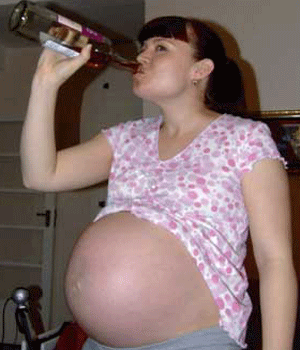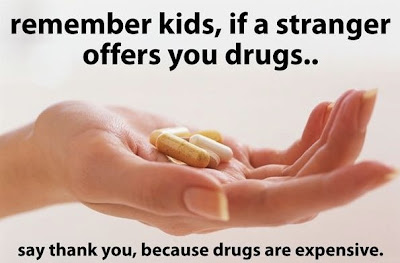For Thursday, I asked you to read five short articles about drugs and alcohol. You may have wondered why I included these in a section on deviant minds. I think we all know that doing illegal drugs is considered deviant, to various degrees, and some of you may include alcohol in your personal definition of deviance. But I want to talk about drugs and alcohol from a different angle. How much is too much? How much consumption is "normal" and when does that cross over into too much? When is that too much considered fun, and when is it considered an illness, or a problem that needs to be fixed? Who gets to make those determinations?

If we were in class, I would ask you this question: is alcoholism/drug addiction an individual problem? Or a societal issue? As with the other topics we have discussed this semester, we have been sold an image in the United States that a person who drinks too much is sick. They can't help their consumption; it's a lifelong disease, with no cure.
So then let me ask you this: is drinking deviant? Think about how deviance is a social construction, in how it varies by time, person, location and context. The same behaviors you exhibit at 21 (give or take), such as binge drinking, are charming--even expected--when you are a traditionally-aged undergraduate (especially if you are in Pullman). Is it always charming? Do race, class, gender, size, ability or sexual orientation make a difference in how "deviant" or not that behavior is perceived? What happens when your 64-year-old professor shows up and gets in line to do a keg stand? Is that same behavior now a little suspect? A little....problematic? What assumptions do you start making about that professor, especially if she's a woman (spot check: what gender did you have in your mind when I said "professor"?)? Has drinking always been considered a problem? Or is that a relatively new construction? Would the same level of consumption be seen as deviant anywhere in the world? Look at how we have regulated alcohol consumption over time, as discussed in the article about the drinking age. As with other categories (like race, gender, size, ability, et al.) we have discussed this semester, age is a social construction. What behaviors and abilities we correlate with which ages are a fluid construction of our making, and the debates around the drinking age show that well.

In the United States, and now around the world, we have an organization called Alcoholics Anonymous. They have done tremendous work to help people stop drinking when they find it is interfering with their life in various ways. In no way do I want to diminish the work they do. I would like you, however, to take a step back and look at how they have shaped our understanding of alcoholism. They, along with a broader social movement, have given a set of behaviors a name (label), and have really changed the way we look at that label. At this point in our history, you are far more likely to see sympathetic portrayals of alcoholics, struggling valiantly with a disease than you would have seen a generation ago. They have been part of an overall reframing of alcohol consumption being a medical issue--they are part of an example of medicalization, as we have discussed in this section. In a way, they have switched the view of alcoholism from being an achieved status to an ascribed status, at some level.

Right now, you could take an online quiz somewhere, and it would tell you if you are an alcoholic. We have a whole list of behaviors that we see as "symptoms" signaling a "problem." And, luckily, groups like AA can offer you a solution. Unlike many of the groups we have discussed this semester, they are not offering their solution to make a profit. But they have created almost a monopoly on the solution. It's their program, or you're not fixing your problem correctly--even the criminal justice system seems to agree, when they mandate attendance at meetings.

What is the consequence of that medicalization? Now that we have these clearly defined symptoms, we see certain behaviors as pathological. Before, maybe you got an eyeroll. Now you get a headshake, and a court mandate. We believe people that drink too much--or in certain ways--are sick. That is a social construction, created by a social movement. Their intentions are positive, perhaps, but it still has consequences. Once you are labeled an alcoholic, that becomes your master status. You know the story from here.
That pathologization has spread to drug consumption in similar ways. Though drugs have been handled differently in our laws compared to alcohol, they too have been medicalized in our culture. Just like you can go to an AA meeting, you can go to a meeting for Narcotics Anonymous, or Crystal Meth Anonymous. Name your "problem" drug, and there is a 12 step solution for you out there. For every drug, there is a support group saying "we know, you couldn't help it, but now we can help you."
There is a positive and a negative impact from this pathologization. It takes the blame off of the individual, in one way, but puts it right back on them with the label of "sick." Is that a fair trade off?

Is drug use a problem? If so, how much is too much? How should it be regulated? Who should decide when it is too much, legally, or medically? How, as a society, should we handle drugs? How have we reacted to the use of drugs we have chosen to make illegal? Are some drugs more deviant than others? Does the deviant label depend on your race, class, gender, ability, et al.?

If you look at the billboards out there trying to stop people from doing crystal meth, they give a very particular message--don't use meth, because it will make you ugly. Are scare tactics the answer? If drugs are a problem, are scare tactics the answer? Research says that youth overestimate the impacts of cigarettes--they actually think they are more harmful than they really are. But that doesn't stop them from smoking. Smoking is cool, and youth often feel invincible.

Is it ever deviant to not do a drug? Is there a pressure to participate in some consumption, such as alcohol or pot? Why is pot a controlled substance? Has it always been illegal? Why is it still illegal? Pot is a great example of a form of deviance being a social construction. It wasn't illegal in the United States. And then it was. And how it became illegal was largely based in politics and lobbying, not for medical reasons, or because of crime problems. To justify making it illegal, the culture had to reframe the way they thought about pot. They had to start seeing it as a "problem" that needed to be controlled, in the eyes of the public, and in the ears of the legislators. Some groups helped to make this happen by using propaganda, including the infamous film Reefer Madness (1938), filled with scare tactics (you've got to protect the children!).
If you really dig into the history of how pot became illegal, you will see it wasn't to help society, it was to make money. And they used racist insecurities and fears to turn the country against a substance they once enjoyed, or at least viewed as neutral.
Why does a society control alcohol and/or drugs? Do we need the government to save us from ourselves? Or is it because controlling alcohol and/or drugs helps society? Certainly, drugs and alcohol cost society, in car accidents, health care, and lost productivity taking away from our economy. But are there also benefits to the consumption of drugs and alcohol?
I gave you two readings about the social harm of drugs. What does the most harm? If we are really legislating drugs to help society, why are we not controlling the drug that causes more harm than all the others, by far--alcohol? Who has the best political lobbyists? Who stands to make money by alcohol sales? If pot could make that much money for some people, would it suddenly be legal? If marijuana had the same political power as alcohol, what would happen? Would it be legal? Could it not just be legal, but woven into our culture as the ultimate party device, as alcohol is?

We have a twisted relationship with alcohol in our culture. We love it, it makes you sexy and cool, but don't drink too much....because that's sick. Why? Why are prescription drugs not treated the same way? Who can afford prescription drugs, and who can afford "street" drugs? How does that influence how we see deviance? Our definitions of deviance, when it comes to drugs and alcohol, are complex, and our messages often contradict each other.


No comments:
Post a Comment